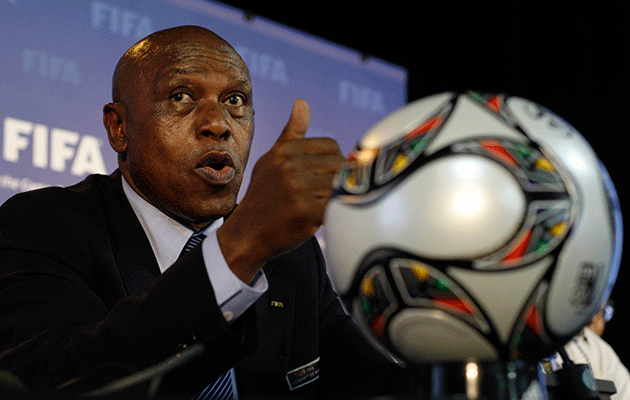Tokyo Sexwale may be grateful that other sporting scandals temporarily at least, have removed FIFA from the headlines after his abysmal first high-profile outing as a contender for the top job
Invited to deliver the keynote address to the ICSS Securing Sport conference in New York, in front of an expert audience, the 64-year-old South African missed a diamond-bright opportunity to seize the initiative.
He could have set out his agenda, an action plan for his first 100 days if elected next February 26.
Even if Sexwale thought this might be too early in the four-month campaign he could have dropped some intriguing hints and invited his audience to await, with expectancy, his manifesto with a strategy to rescue the world federation from drowning in a stormy sea of its own creation.
He did neither; in a rambling tumble of remarks stitched together with dutifully respectful references to Nelson Mandela he also made it clear that FIFA was not his main priority.
This was reserved for his leadership of Global Watch and the fight to rid the world of racism and bigotry. Perfectly proper. Perfectly laudable. Certainly a far greater mission than removing a few grubby fingers from the sporting till.
However . . . what FIFA needs right now is a man or woman who can take instant, committed command and dedicate the 24/7 attention essential to turn it around.
Sexwale was correct in assessing this overall task as beyond one single individual. On the other hand someone to focus and direct a collective will for change (if it exists and even if it does not) is essential. Not a part-time boss who flits in and out of Zurich every week or two, somewhere halfway down a busy agenda comprising a plethora of other charitable, business and political concerns.
To be fair Sexwale appeared to have had his usual problems at New York immigration but then he had flown in only early that morning. For a man booked to deliver the keynote speech this was not merely poor planning but discourteous to ICSS which had invited him.
The keynote speaker should be on keynote form.
Sexwale did ramble round to address the FIFA crisis eventually, albeit as if something of an afterthought. He did so in generalisations and platitudes before concluding with – for the second time in a week – a misrepresentation of the stated case of the World Cup’s four US-headquartered sponsors.
“Sponsor activism,” was a stance Sexwale resented. Reprehensibly, he complained, the sponsors had demanded that Sepp Blatter should quit as president immediately or they would take their money elsewhere.
This was a lack of attention to detail which did Sexwale no favours.
On October 2 the four US sponsors – Coca-Cola, McDonald’s, Visa and InBev/Budweiser – issued co-ordinated statements which, indeed, did demand the immediate departure of Blatter as president of FIFA.
None of them, however, threatened to jump ship.
Indeed, most of the criticism of the sponsors is that they have not been strident enough in demanding a change of culture and leadership in Zurich.
If Sexwale wants to be the man providing that new leadership, then he needs to raise his game . . . significantly.
If not then he might sensibly leave the FIFA race to those prepared to demonstrate that they really want to run.







